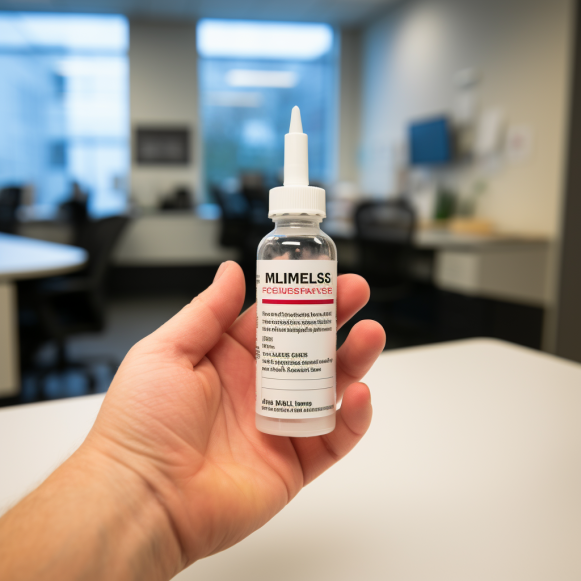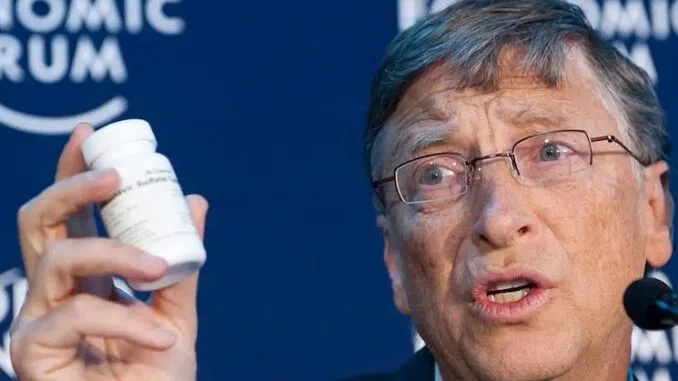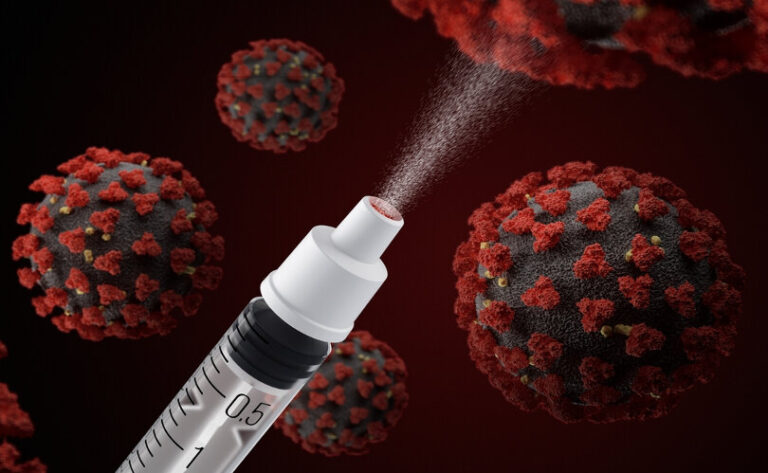Highest-Ever Childhood Vaccine Exemption Rate in History, Doctors Explain

Before the pandemic, the United States had maintained nearly 95 percent nationwide vaccination coverage for 10 years.
According to a Centers for Disease Control and Prevention (CDC) report published on November 10, the United States now has the highest-ever childhood vaccine exemption rate in history.
For ten years prior to the pandemic, the United States had maintained nearly 95 percent nationwide vaccination coverage.
Despite this, vaccine coverage in kindergarten-aged children fell to 94% between 2020 and 2021, and 93% between 2021 and 2022.
Vaccine exemption rates have also risen to 3%.
“It is not clear whether this reflects a true increase in opposition to vaccination, or if parents are opting for nonmedical [vaccine] exemptions because of barriers to vaccination or out of convenience,” the authors of the study said.
“Whether because of an increase in hesitancy or barriers to vaccination, the COVID-19 pandemic affected childhood routine vaccination,” the researchers wrote.
Skepticism about vaccines is spreading as a result of post-COVID skepticism.
Dr. Cody Meissner, a pediatrics professor at Dartmouth Geisel School of Medicine, was concerned that people’s skepticism about the current COVID-19 vaccines might have influenced their attitude toward conventional vaccines, leading to a drop in CDC-recommended and state-required vaccinations, as recently reported by the CDC.
He cited the CDC’s initial failure to recognize myocarditis as a COVID vaccine side effect in adolescents and young adults, along with the agency’s encouragement to vaccinate, as one example of what may be contributing to people’s mistrust.
“I think those [vaccination] recommendations were well-intentioned,” he said, but the CDC’s slow acknowledgement of side effects may have given some people the impression that the agency was “not completely forthcoming.”
According to pediatrician Dr. Mark Barrett, the current trend is likely caused by people distrusting recommendations from the CDC, the FDA, and even their doctors.
“I feel parents are doing their own research,” he wrote in an email to The Epoch Times.
Dr. Derek Husmann, a pediatrician, stated that children with the lowest risk of severe COVID-19 provided parents and pediatricians with a unique perspective, prompting them to question the general need for vaccines.
“The pediatricians’ perspective is pretty significantly different—in reference to the COVID pandemic—than a physician who takes care of adults,” says Dr. Husmann, “because the pediatric population was at essentially zero risk of death or serious complications from COVID infection.”
According to the CDC website dashboard, COVID-19 deaths account for about 3% of all deaths, but the percentage is even lower in children.
“There was a perceived conflict between the information that COVID was less serious in children, despite the fact that the vaccine was recommended for them.” “This was never satisfactorily explained or resolved,” Dr. William Schaffner, a professor of preventive medicine and health policy in Vanderbilt University Medical Center’s Infectious Disease Division, wrote to The Epoch Times.
According to Dr. Samara Cardenas of California, the public gradually realized that the COVID-19 vaccines were not as safe or effective as initially promised, which may have led parents to question the need for routine vaccinations.
“[In California], they won’t even accept a medical exemption if you aren’t vaccinated.” “As a result, I have quite a few patients who want to homeschool their children rather than vaccinate them,” she explained.
“There has been this incredible increase in homeschooling since the COVID pandemic, and so that may have falsely inflated the vaccine rates in the [report],” Dr. Husmann, who is based in rural Texas, explained.
Conventional Vaccines vs. COVID-19 Vaccines
Some doctors are concerned about the risks posed by declining vaccination rates and the potential for increased outbreaks of vaccine-preventable diseases such as polio.
Dr. Meissner went on to say, “At this time, it is important for parents to consider a distinction between the benefits versus risks of the pediatric COVID vaccines and other childhood vaccines that have successfully controlled many infectious diseases.”
Dr. Schaffner agreed, adding that children are encouraged to get immunized against COVID-19 and that more public health work is needed to encourage the use of conventional vaccines.
“For [parents], measles, polio, and diphtheria are all hazy concepts.” As a result, these diseases are unknown, and thus not respected or even feared, raising concerns about the vaccine,” Dr. Schaffner explained.
“I tell current medical students that before we had measles vaccine available in the United States, back in the 1960s, there were 400 to 500 children that died annually in the United States, secondary to measles and its complications,” he said. “Their mouths drop open. They’ve got no idea.”
Some doctors, however, are becoming more cautious about childhood vaccine recommendations, fearing denial and potential cover-up of side effects.
“There is a potential public health concern when children remain fully unvaccinated for all traditional childhood vaccines,” pediatrician Dr. Renata Moon, a former University of Washington professor of medicine, wrote to The Epoch Times. “[However], everyone is wondering, ‘What safety data do we have for each childhood vaccine?'”
“Many parents who used to adhere to the traditional childhood vaccination schedule have stopped vaccinating their children entirely.” “They have lost trust in public health agency recommendations and are taking the’safer to wait’ approach,” she added.
Dr. Cardenas made a similar statement to Dr. Moon. “I used to be 100 percent vaccinated,” she said, adding that the COVID era has made her realize she needs to do more research and, for the time being, has taken the safer-to-wait approach.
Dr. Husmann went on to say that immunization does not guarantee complete elimination of outbreaks, citing measles outbreaks among both vaccinated and unvaccinated people.
A measles outbreak occurred in a heavily vaccinated boarding school in Pennsylvania in 2003. The school had a 95 percent vaccination rate. Only two of the nine laboratory-confirmed cases of measles were unvaccinated.
Other examples show the opposite scenario. A measles outbreak occurred in central Ohio in December 2022. The jurisdiction estimated an immunization rate of 80 to 90 percent, but the majority (67) of the 73 children infected were unvaccinated.
Vaccination has been recommended for centuries because there is no trade-off for immunity against infectious disease. Drs. Husmann and Cardenas, on the other hand, argue that childhood vaccines may pose long-term risks that are unknown and rarely discussed.
Safety of Childhood Vaccines Scrutinized
Childhood vaccines have recently come under renewed scrutiny. The measles, mumps, rubella (MMR) and diphtheria, tetanus, pertussis (DTaP) vaccines have been linked to autism, as have the human papillomavirus (HPV) vaccines.
Long-term vaccine safety data and vaccine studies, however, are lacking for all vaccines on the market.
For example, the Haemophilus influenzae B vaccine (Hib), a four-dose series approved for infants and children aged 2 months to 5 years, had only 30 days of post-vaccination safety monitoring. According to the package insert for Infanrix, a DTaP vaccine, adverse reactions were only monitored for four days after vaccination.
The National Vaccine Program Office commissioned the former Institute of Medicine (IOM) committee, now known as the National Academy of Medicine, in 2013 to reexamine the evidence supporting the CDC’s childhood vaccine schedule’s safety claims.
The committee discovered that “few studies have comprehensively assessed the association between the entire immunization schedule or variation in the overall schedule” and health outcomes, and that “no study has directly examined health outcomes” in the manner that the committee was tasked with addressing.
The committee went on to say that no research had been done “to determine the long-term effects of the cumulative number of vaccines or other aspects of the immunization schedule.”
While there are no long-term randomized, controlled trials for any vaccines, extensive research has been conducted comparing vaccinated populations to unvaccinated populations. Randomized placebo-controlled trials are the gold standard for evaluating treatments.
A 2017 pilot study led by Jackson State University professor Anthony Mawson compared vaccinated, partially vaccinated, and unvaccinated children aged 6 to 12.
While fully and partially vaccinated children had significantly fewer cases of chickenpox and pertussis, they had 30 times the odds of having allergic rhinitis and around four times the odds of having allergies, attention-deficit/hyperactivity disorder (ADHD), and autism. They were also five times more likely to have a learning disability and nearly four times more likely to have a neurodevelopmental disorder.
Mr. Mawson’s second study compared unvaccinated, vaccinated, and vaccinated children with preterm birth, a risk factor for neurodevelopmental deficits. Vaccinated children had nearly three times the risk of neurodevelopmental disorders, while preterm and vaccinated children had 14.5 times the risk of neurodevelopmental disorders as unvaccinated children.
A 2020 study led by Brian Hooker, professor emeritus of biology at Simpson University, compared data from three different medical practices on vaccinated and unvaccinated children. The researchers discovered that vaccinated children had nearly 4.5 times the risk of asthma and more than twice the risk of developmental delays and ear infections.
These studies do not indicate a causal relationship because they are not randomized and controlled, but they do raise potential health concerns.
According to Dr. Husmann, the study findings suggest that children may be trading long-term health for infectious disease immunity.
“We believe we’re making a choice between immunization and possibly some short-term adverse reactions like pain, swelling, fever, fussiness, or not feeling well for a few days,” Dr. Husman explained, “but we’re also significantly increasing your child’s risk of a whole host of chronic health conditions like autism, seizures, and asthma.”
“You really don’t know if it’s worth it to try to prevent an incredibly rare infectious disease and put your child or yourself at risk of a chronic illness.”
An Opportunity for Safer Vaccines
While Dr. Husmann questions vaccine safety, he remains optimistic about the future of adequately tested and safe vaccines.
“I don’t necessarily want my patients to be anti-vaccine; I want them to be vaccine-free… “I want my patients to be open to and accepting of any truly safe and effective vaccine.”
Similarly, Dr. Cardenas agreed that it is a good thing that parents are learning about these medications on their own.
“Everyone should be instructed and educated on what is going on when they are being injected or given medications.” What is this for, you should ask your doctor? What are the negative consequences? I believe the public is starting to do so, which I believe is very positive.”





